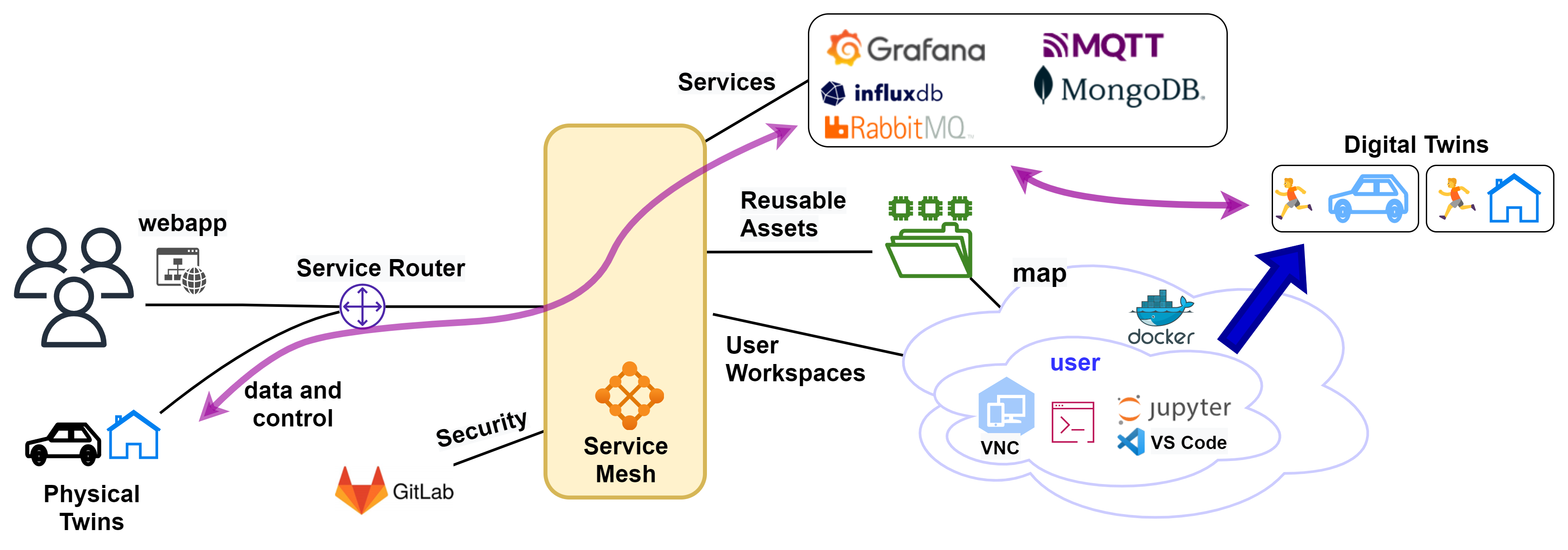 Current Status
Current Status
The DTaaS software platform is currently under development. Crucial system components are in place with ongoing development work focusing on increased automation and feature enhancement. The figure below shows the current status of the development work.

A C4 representation of the same diagram is also available.
 User Security
User Security
There is a two-level authorization mechanisms in place for the react website and the Traefik gateway.
The react website component uses GitLab for user authorization using OAuth 2.0 protocol.
Gateway Authorization
The Traefik gateway has OAuth 2.0 web server authorization provided by Traefik-forward-auth microservice. This authorization protects all the microservices and workspaces running in the backend.
 User Workspaces
User Workspaces
All users have dedicated dockerized-workspaces. These docker-images are based on container images published by mltooling group.
Thus DT experts can develop DTs from existing DT components and share them with other users. A file server has been setup to act as a DT asset repository. Each user gets space to store private DT assets and also gets access to shared DT assets. Users can synchronize their private DT assets with external git repositories. In addition, the asset repository transparently gets mapped to user workspaces within which users can perform DT lifecycle operations. There is also a library microservice which in the long-run will replace the file server.
Users can run DTs in their workspaces and also permit remote access to other users. There is already shared access to internal and external services. With these two provisions, users can treat live DTs as service components in their own software systems.
 Platform Services
Platform Services
There are four external services integrated with the DTaaS software platform. They are: ThingsBoard, InfluxDB, Grafana, RabbitMQ, MQTT, MongoDB, and PostgreSQL
These services can be used by DTs and PTs for communication, storing and visualization of data. There can also be monitoring services setup based on these services.
Development Priorities
The development priorities for the DTaaS software development team are:
- Create npm package for DevOps features of React Client
- Improve python package of platform services and DTaaS CLI
- Upgrade software stack of user workspaces
- Increased automation of installation procedures
- DT Configuration DSL ín the form of YAML schema
Your contributions are highly welcome.
References
Font sources: fileformat